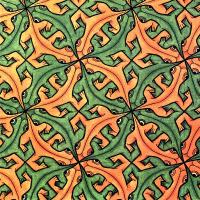Съобщения: 17
Език: English
ShannonCC (Покажи профила) 10 ноември 2013, 18:20:59

Ĉu is confusing me. I thought I had a handle on it. I watched a Muzzy video that I thought explained it as Ĉu tio = this. Mi ne ŝatas ĉi tion seemed to be translated as I do not like this (and when I put it in google translate, that's what it comes out as).
But then in the book Teach Yourself Esperanto, he went into much more detail with Ĉu. He didn't use the example of Ĉu tio at all, instead, many examples making it sound like a question
Ĉu mi staras? (instead of mi staras). And Ĉu mi estas bela? (instead of Mi estas bela.).
So from the book, it seems to be "do". So, is Ĉu tio something else?
jismith1989 (Покажи профила) 10 ноември 2013, 18:30:38
ShannonCC:Another plea for helpHi again!
Ĉu is confusing me. I thought I had a handle on it. I watched a Muzzy video that I thought explained it as Ĉu tio = this. Mi ne ŝatas ĉi tion seemed to be translated as I do not like this (and when I put it in google translate, that's what it comes out as).
But then in the book Teach Yourself Esperanto, he went into much more detail with Ĉu. He didn't use the example of Ĉu tio at all, instead, many examples making it sound like a question
Ĉu mi staras? (instead of mi staras). And Ĉu mi estas bela? (instead of Mi estas bela.).
So from the book, it seems to be "do". So, is Ĉu tio something else?
 (Resaluton!) I think you've got two words confused: ĉi and ĉu.
(Resaluton!) I think you've got two words confused: ĉi and ĉu.Ĉi is used with tio and tie and those kind of words to mean 'this' and 'here' etc. That's all it does, modifies words to make them 'closer' (i.e. it denotes proximity).
Whereas ĉu is purely a question (interrogative) word: it just shows you've got a question. Sometimes it can be translated as 'whether' but mostly not. Your questions would be translated as 'Am I standing?'/'Do I stand?' and 'Am I beautiful?', so there's no specific word for ĉu there, we just change the word order around in English to show that we're asking a question rather than making a statement. (We can also ask questions without changing the word order like, for example, 'I am beautiful, aren't I?' [Mi estas bela, ĉu ne?].)
ShannonCC (Покажи профила) 10 ноември 2013, 19:01:46
I re-read those notes many times, even just before I wrote that post and didn't see that, lol! That makes so much more sense now, lol!
Thanks so much! I'm enjoying all the free online resources but talking (er, typing) to other people helps a lot

jismith1989 (Покажи профила) 10 ноември 2013, 19:45:34
ShannonCC:Oh. My. Gosh. LOL! Thank you. Duh! I am looking at my notes and yup, it was ĉi in the muzzy video, not ĉu.True, it helps to have someone explain things a bit sometimes. I'm impressed that you have notes though: that shows dedication to the cause, I'm not that organized! I've not watched the Muzzy videos, but I used things like that when I was learning other languages. It does help, especially if they're genuinely entertaining -- even if they're only funny because they're so naff (though I don't think you use that word in America!).
I re-read those notes many times, even just before I wrote that post and didn't see that, lol! That makes so much more sense now, lol!
Thanks so much! I'm enjoying all the free online resources but talking (er, typing) to other people helps a lot
Also, Google translate is actually pretty good for Esperanto. For most languages (especially fairly complex ones) it's crap, but it works pretty well for Esperanto since it's so regular. Just don't trust everything it says!
ShannonCC (Покажи профила) 10 ноември 2013, 19:56:37

I take notes mostly because if I write it down, I remember it better. I don't take *good* notes, lol! They're a bit of a mess
 But I read somewhere that the act of writing something down can help you remember and that seems to be the case with me. I also found a really cool site where you can make language courses (really simple ones for me) so I'm watching the Muzzy videos on youtube and making a course to go with each one. Mainly to help me remember it even more because to make the course I have to watch and re-watch and take notes and double check with google, etc and I think it's really helping.
But I read somewhere that the act of writing something down can help you remember and that seems to be the case with me. I also found a really cool site where you can make language courses (really simple ones for me) so I'm watching the Muzzy videos on youtube and making a course to go with each one. Mainly to help me remember it even more because to make the course I have to watch and re-watch and take notes and double check with google, etc and I think it's really helping. Muzzy is fun just because we tried it with my daughter with Spanish so it brings back nice memories

RiotNrrd (Покажи профила) 10 ноември 2013, 20:21:27
It's kind of like a verbal question mark that you put at the beginning. Sort of like that upside-down question mark in written Spanish, except that we say it.
jismith1989 (Покажи профила) 10 ноември 2013, 20:37:38
ShannonCC:No, what's "naff"? Yeah, never heard that oneOh, it just means lame/rubbish. Probably only in Britain though!
I take notes mostly because if I write it down, I remember it better. I don't take *good* notes, lol! They're a bit of a messBut I read somewhere that the act of writing something down can help you remember and that seems to be the case with me. I also found a really cool site where you can make language courses (really simple ones for me) so I'm watching the Muzzy videos on youtube and making a course to go with each one. Mainly to help me remember it even more because to make the course I have to watch and re-watch and take notes and double check with google, etc and I think it's really helping.
Muzzy is fun just because we tried it with my daughter with Spanish so it brings back nice memories
That's cool, I suppose when you get a little bit better, you'll be able to write out real notes in Esperanto and no one will be able to know what you've jotted down! The Esperanto forums seem pretty good too. Just using the language there helps cement it in, plus you have the vortaro at the side so it's easy to look up words you don't know. Is that the Memrise site? I use that as well, I learnt some Chinese characters and things there. Or is there another one?
That's great, is your daughter learning some Esperanto too? Best wishes with the learning anyway. Amike!
Nile (Покажи профила) 10 ноември 2013, 21:22:38
jismith1989:That's cool, I suppose when you get a little bit better, you'll be able to write out real notes in Esperanto and no one will be able to know what you've jotted down!Welllll, it's somewhat mutually intelligible with English. Anybody who knows 2 or 3 European languages can guess at a lot of the meaning.
jismith1989 (Покажи профила) 10 ноември 2013, 21:53:14
Nile:Yeah, I guess so. The accents make it look a bit funny to an untrained eye though. But, all in all, maybe not a good idea to jot down any state secrets!jismith1989:That's cool, I suppose when you get a little bit better, you'll be able to write out real notes in Esperanto and no one will be able to know what you've jotted down!Welllll, it's somewhat mutually intelligible with English. Anybody who knows 2 or 3 European languages can guess at a lot of the meaning.
orthohawk (Покажи профила) 10 ноември 2013, 21:54:02
Nile:No. Mutual intelligibility is based on the amount you can understand of language B when you only know language A.jismith1989:That's cool, I suppose when you get a little bit better, you'll be able to write out real notes in Esperanto and no one will be able to know what you've jotted down!Welllll, it's somewhat mutually intelligible with English. Anybody who knows 2 or 3 European languages can guess at a lot of the meaning.
E.g. Mutual intelligibility of Spanish and Italian is very high. Between English and Esperanto isn't. I can't really judge the mutual intelligibility accurately of Esperanto and English because I learned Spanish before I learned Esperanto, but even then, I had to learn the endings and affix system.


